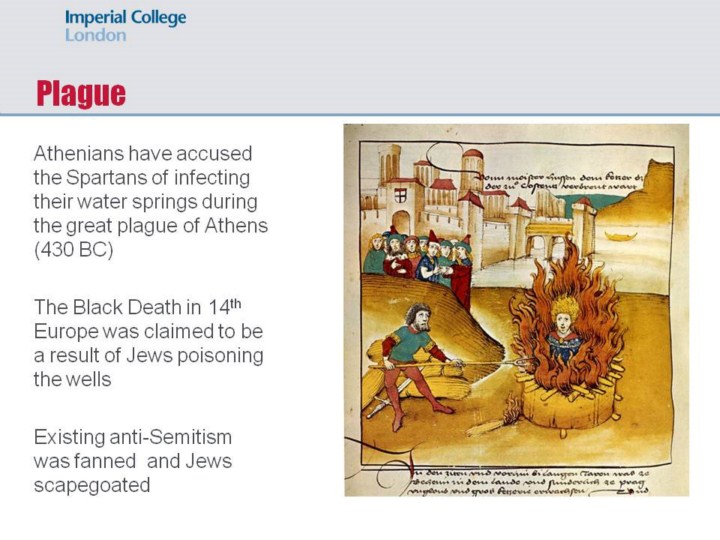| front |1 |2 |3 |4 |5 |6 |7 |8 |9 |10 |11 |12 |13 |14 |15 |16 |17 |18 |review |
 |
The use, or alleged use, of infectious diseases as weapons to terrorize one’s enemies has a long history. The earliest accounts of infectious diseases apparently used to deliberately infect an enemy come from the plagues of classical antiquity. For example, the Spartans were accused of poisoning the springs that supplied water to Athens during the Peloponnesian war. One problem with these accounts is that it is often unclear what modern disease the various historical descriptions of ‘plague’ correspond to. Tainted water, though responsible for other infections, is unlikely to have been the source of the subsequent ‘Plague of Athens’ which was more likely to have been caused by the crowding and congestion of the Athenian population behind the city walls during the siege. In the 14th century, the Tartars were said to have catapulted corpses of plague victims into the besieged city of Kaffa, causing outbreaks of plague within the city walls. However, if the ‘plague’ was what we now know as Yersinia pestis, the cause of bubonic plague, then the vectors would have been rats and lice, rather than infected corpses. However, neither the perpetrators nor the besieged would have understood that, and the resulting terror of contagion would nevertheless have been great.
In fourteenth century Europe, the ‘Black Death’ fanned existing anti-Semitism, and was widely believed to be the result of a Jewish conspiracy to deliberately poison the wells. Jews often traded in spices or as apothecaries, and many practiced as doctors, which raised additional suspicions and accusation of conspiracy. It is also possible that the belief that Jews were to blame for the Black Death was inspired or exacerbated by a visibly lower incidence of the plague among Jews, as they were segregated in their own urban quarters, cut off from the rodents on the wharves and the cattle in the countryside that were the main carriers of the disease. Jewish hygiene traditions and selective diets may well also have isolated them from the plague (Cantor, 2001). Similar reasons have been proposed as accounting for the Israelites escaping the Biblical plagues of Egypt. |